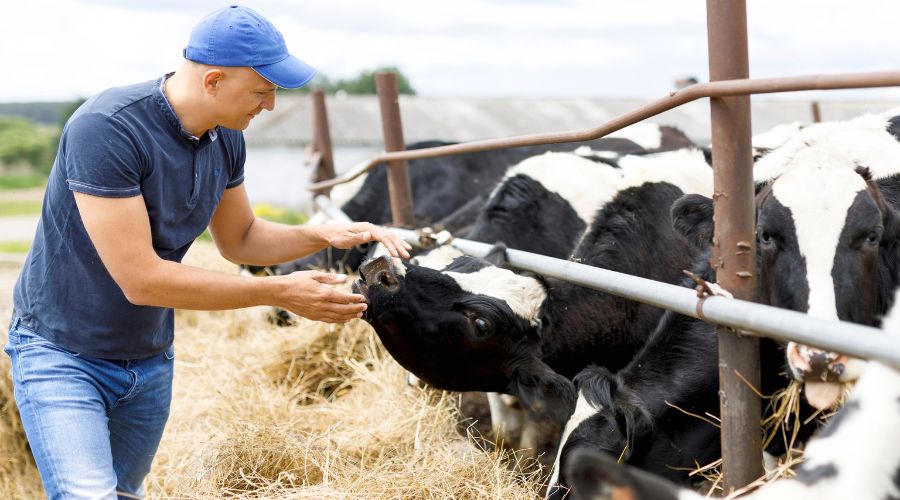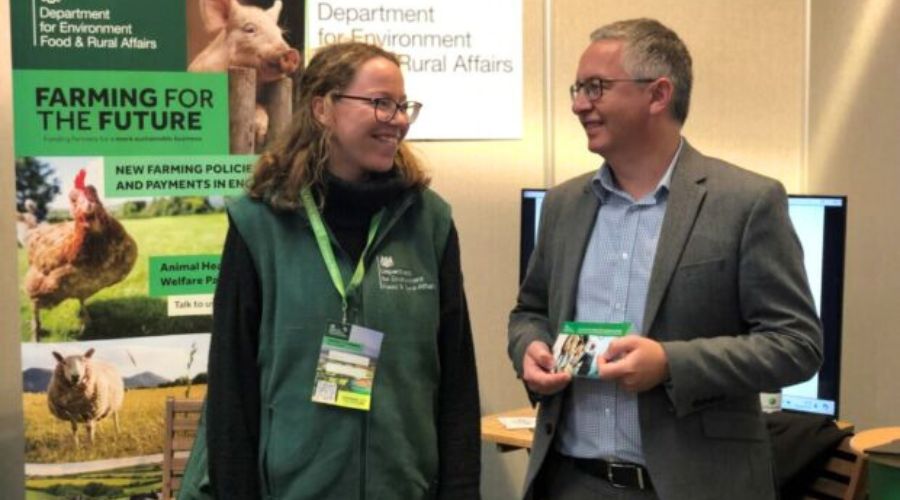Dairy farmers promised fairness and transparency as new milk contract regulations are introduced
23rd October 2024
The newly appointed agricultural supply chain adjudicator who enforces the Fair Dealings Obligations (Milk) Regulations has spoken about his mission to improve fairness and transparency in the supply chain.

Richard Thompson has been recently appointed the agricultural supply chain adjudicator following the new milk contract regulations coming into force.
He said: “A huge amount of hard work and dedication goes into putting milk products on tables, and I’ve been struck by the commitment of both dairy producers and processors to get things right under FDOM24 to improve transparency and fairness in the supply chain.
“[…] By working together, we can improve the dairy supply chain without creating significant burdens or generating animosity in the process.”
Mr Thompson also explained that FDOM24 covers the direct purchase of cow’s milk from a farm by a business purchaser, from farm gate to dairy processor or manufacturer.
These new rules make sure both purchasers and producers know their rights and responsibilities under milk purchase contracts.
In summary, contracts must now be in writing, signed, and include clear terms about pricing, how long the contract lasts, how it can be ended, and how disputes will be settled, Mr Thompson confirmed.
READ MORE: Concerns raised over potential changes to dairy contract legislation
READ MORE: ‘Significant step’: Long-awaited dairy contract legislation introduced
Fair, prompt and empathetic service
He added: “If you’re a dairy producer or purchaser, any new milk purchase contract you make after 9th July 2024 must comply with the rules. And by 9th July 2025, all contracts, new and existing, must meet these standards.
“A primary part of my role as the ASCA is to ensure purchasers understand and comply with FDOM24 and producers know how to raise a complaint with my office.”

A producer can make a complaint if:
- they don’t have a written milk purchase contract.
- their contract is missing something the regulations require.
- their contract includes something that goes against the regulations.
- if their contract uses a variable price set by the purchaser and they don’t explain, if asked, how they reached a new price within 7 days of a price review.
Mr Thompson said that if a breach was found, he could impose a fine of up to 1% of the purchaser’s turnover and/or make them compensate the producer. Read the full guidance here.
“I know making a formal complaint can feel overwhelming for producers, especially for small, local businesses. My goal is to make the process as open and accessible as possible.
“I want everyone, whether a producer or a purchaser, to get a fair, prompt, and empathetic service where we can reach resolution as quickly and easily as possible,” he continued.
Influencing positive behaviour change in dairy industry
Mr Thompson explained that his main responsibility is to improve fairness and transparency in the supply chain.
He added: “This means raising awareness about what’s working well, and what’s not, in the dairy market. It’s about encouraging best practice and influencing positive behaviour change.
“That’s why ongoing engagement with dairy producers, purchasers, and other stakeholders is so important.
“By being a trusted, authoritative voice on what’s happening in the dairy supply chain, my aim is to be able to address issues early and encourage positive changes before complaints even happen.”
Mr Thompson also said that he welcomes the opportunity to meet with producers to understand issues with the milk purchase contracts.
“While I won’t hesitate to use my enforcement powers when needed, I hope we can achieve a lot by working together to prevent problems from arising in the first place,” he concluded.
Get in touch with the ASCA at asca@defra.gov.uk.
Read more farm business news.
